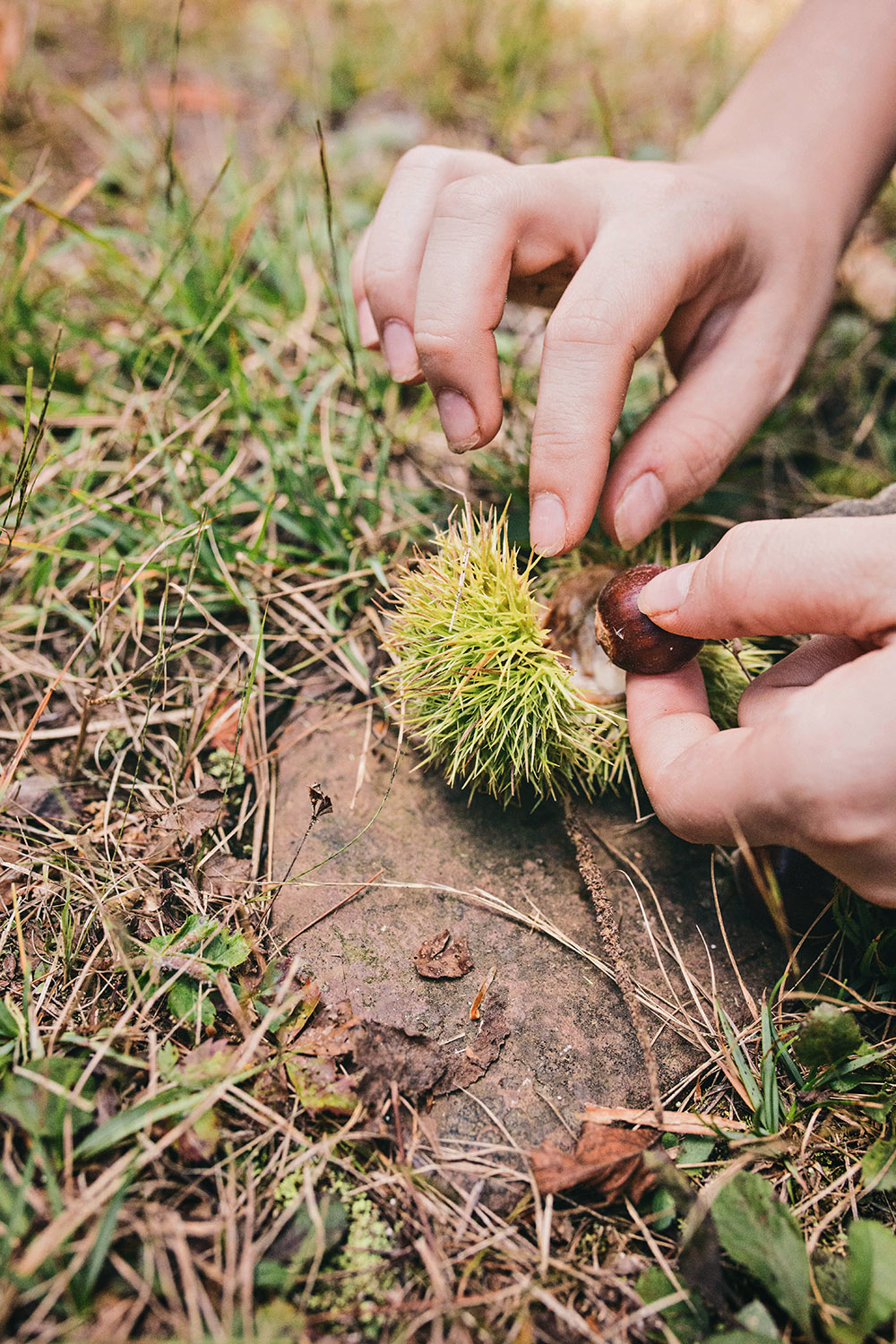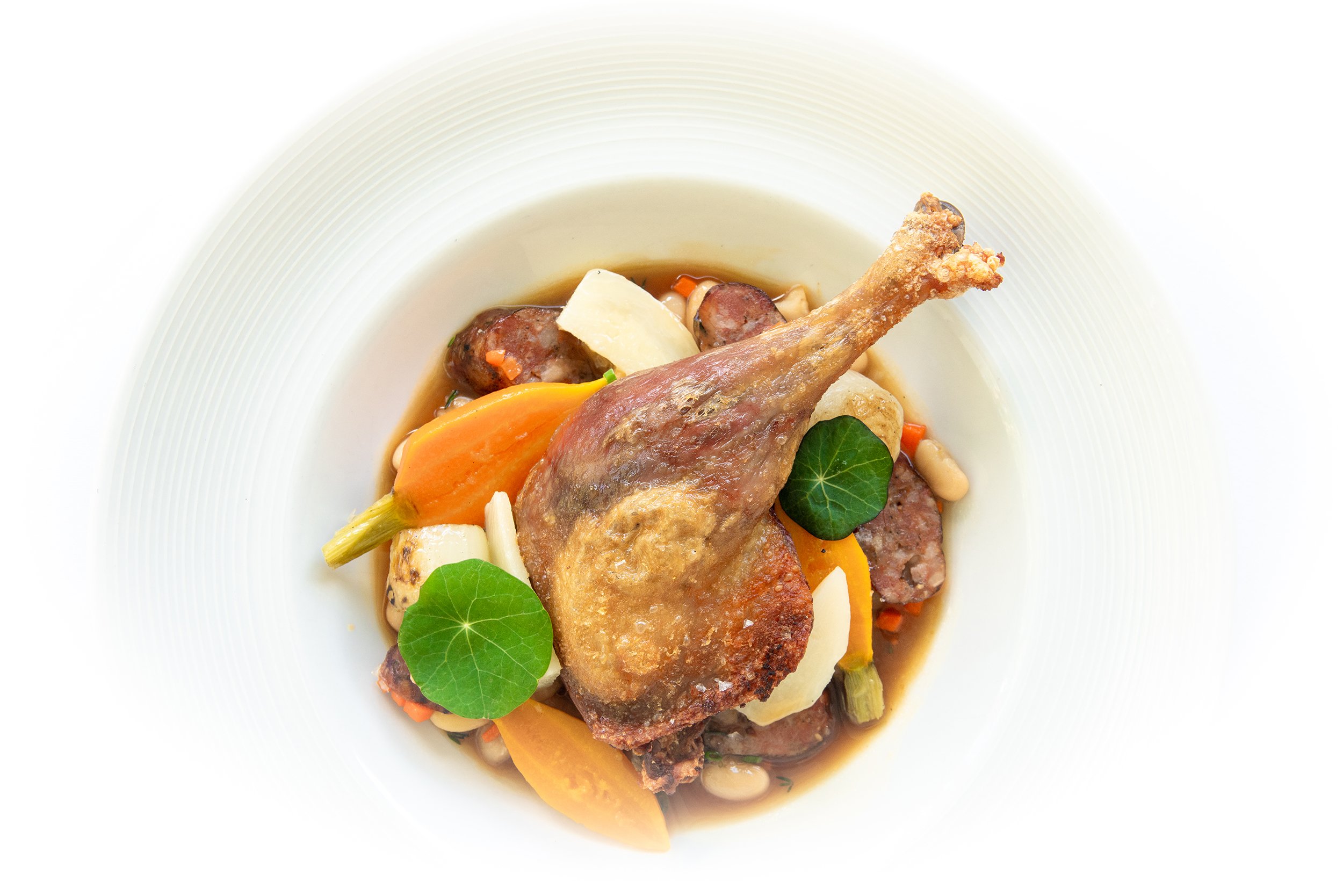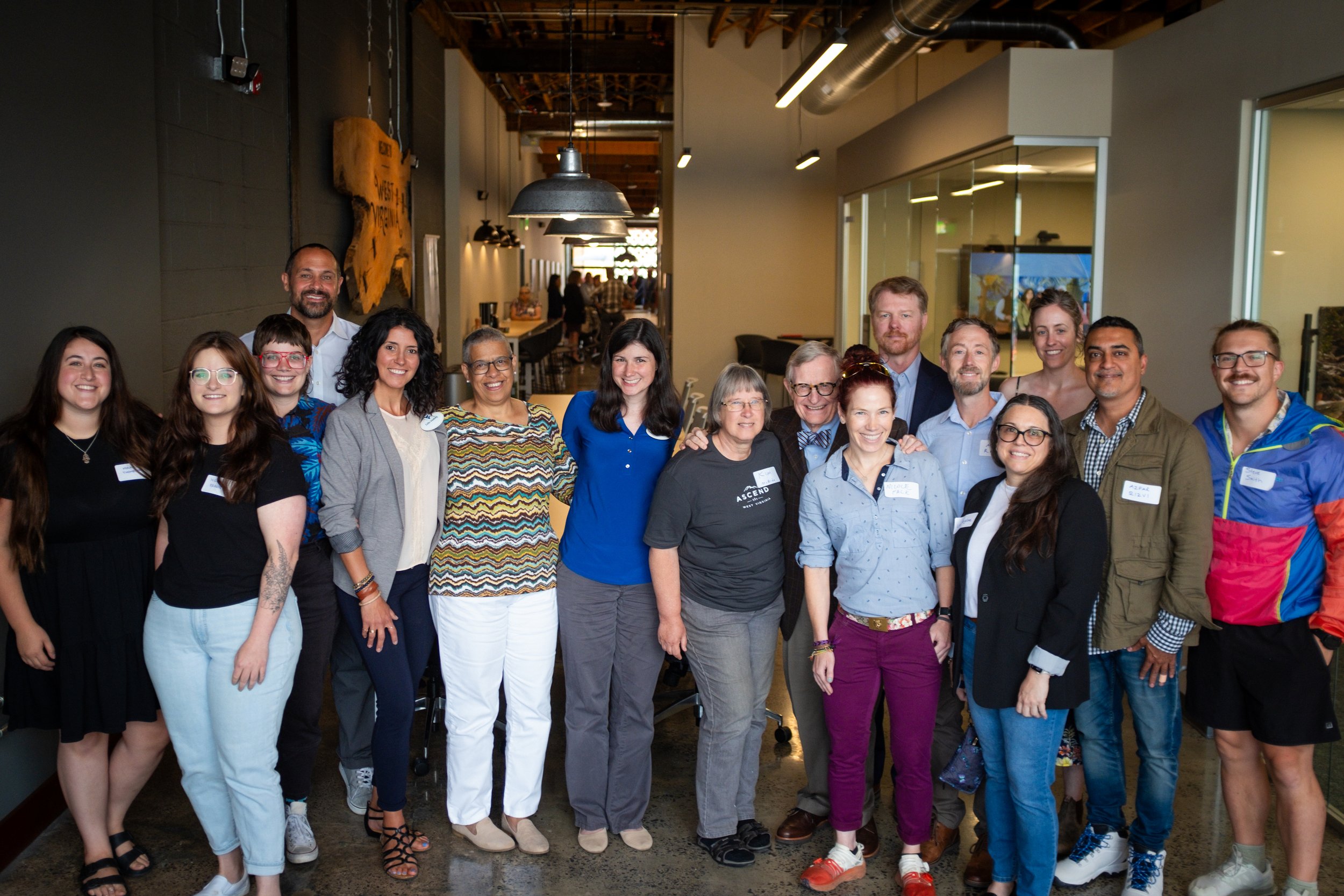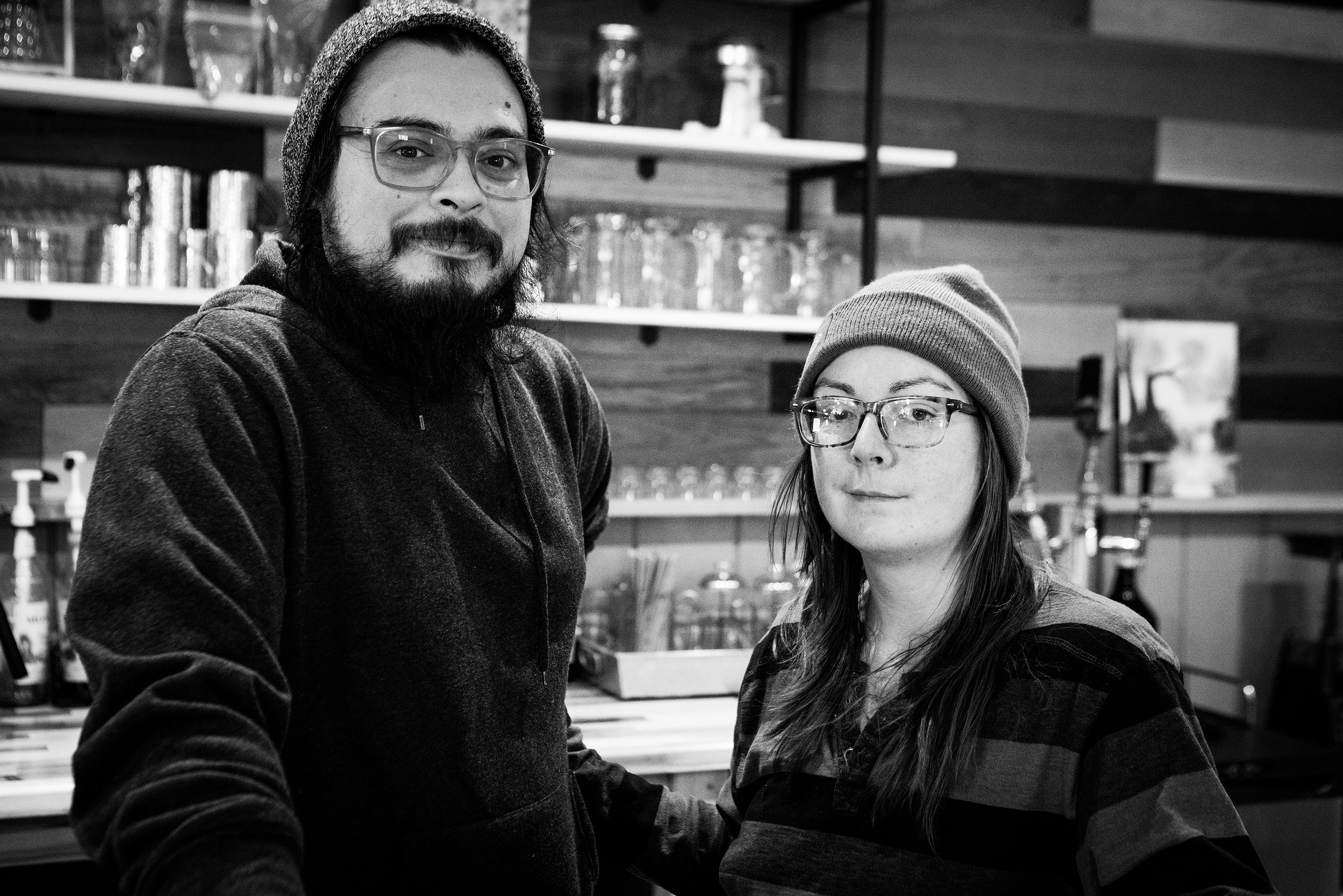Mountain Steer: Family Farm to Family Table
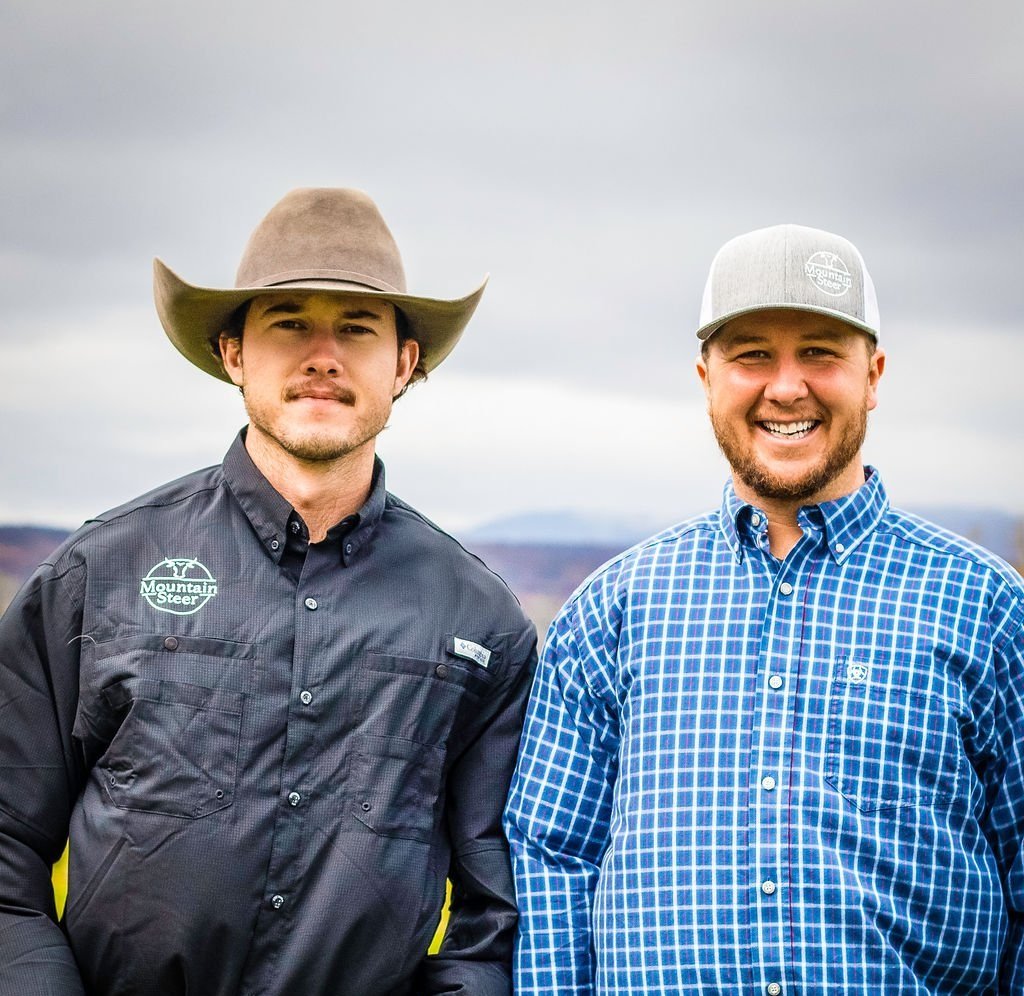
Story by Leah Tuckwiller
Photos by Mary Baldwin & CJWV Photography
Local farmers Frank Ford and James Tuckwiller are shaking up the beef industry. With a new retail location in White Sulphur Springs, dinner just got a whole lot better.
It’s a small space, and the crowd makes use of every inch of it. Despite the weather—slushy, just the wrong side of freezing, a chill sneaking in each time the door opens—a seemingly endless flow of people have come to support Mountain Steer Meat Company at the January grand opening of their retail shop. The air is thick with hellos and conversation and, best of all, the smell of smash burgers cooking in the recesses of the shop, to be devoured by the dozens of people congregating on the floor. A few news cameras come in and vie for the best wide shot of the whole crowd, and between the coolers lining the wall, the radio station has a table set up with mics galore. Everyone gets in on the party.
James Tuckwiller and Frank Ford, who created Mountain Steer in 2020, mingle with patrons, chatting like they’re all old friends—because most of them are. These sons of two well-established local farming families founded their company to first and foremost supplement the income of their farms and the farms of their families and neighbors.
“Initially,” Ford says, “we thought we’d try it out for a few weeks, maybe a few months, and see what we could do, if it became profitable.”
It did, indeed.
“We started to see feedback from this area, and it was very, very positive. With farming,” Ford says, “the best way to make a million is to start with two. We wanted to do something more for our farms, for our families, for the community. So, it kind of fell in line with what we wanted to do eventually, adding some type of secondary source of income for the farm. It just happened, really, we just kept going with it and going with it. And decided to make it legit.”
It appears the whole community has turned out for the grand opening—represented are family members, friends new and old, and folks who appear to be stopping in on their lunch break from nearby White Sulphur Springs businesses to support their neighbors.
Ford and Tuckwiller take a moment in the middle of it all to thank the hundred-odd people who’ve come to the shop over the course of the day, news channels carrying the message out to those who couldn’t stay for the ribbon-cutting. “It means the world,” Tuckwiller said to the crowd. “Here’s to many more years of success.”
Just three years into its life, Mountain Steer Meat Company is making bigger and bigger waves in the beef industry. Its impact is already clear to farmers, restauranteurs, and meat-eaters countywide, and they’re still just getting started.
Ford and Tuckwiller are both farmers first. The two of them have been out personally doing the raising of local beef since childhood, so when the COVID-19 pandemic began to cause trouble on supply lines in 2020, it put a spotlight on a real problem for families like theirs; in order to be processed, West Virginia beef was being shipped first out of state, then back in for sale.
That wouldn’t do. It hurt their farms, their families, and their community—not to mention being ridiculous.
In 2020, they took matters into their own hands, and began processing their own meat from their own cattle and the cattle of their neighbors here in the Greenbrier Valley. For Tuckwiller and Ford, that’s one of the biggest differences in Mountain Steer beef versus any standard ribeye from a chain supermarket—the flavor is better in local beef, the treatment of the animals is at a much higher standard, and every dollar and decision put into the product stays right where it started, bolstering the local economy and all the friends and neighbors Ford and Tuckwiller are so keen on supporting.
“Ever since we were kids,” Ford says, the area has been very focused on community support. “We couldn’t be in a better spot to do something [like this]. There are a lot of communities or larger cities or towns that really don’t care. Greenbrier County definitely cares about its people and what their people are doing.”
At the beginning, Mountain Steer was focused on picking up the slack in beef supply lines, cutting meat and partnering with local restaurants and Cornerstone IGA in Fairlea to help sell it in the community. Those partnerships still exist, and Ford says Mountain Steer is eager to keep them—“as long as IGA and these local restaurants want to keep us, we want to supply them,” he says.
They never really had a formal soft opening, Tuckwiller says, “We just kind of opened the door in early December. Like, ‘all right, let’s just see what foot traffic comes in naturally. Let’s do some experimenting to see how the layout is. We didn’t want to overwhelm Annie [Smead, the office administrator], and overwhelm us. And people have learned about us.”
He makes a point, though, to mention that people are calling for price lists, and while he says they’re happy to discuss cutting in bulk, the point of the retail shop is that folks can come in and get individual cuts by the pound instead of the hundreds of pounds.
“We will cut halves, quarters, whole beefs, but this operation is a retail shop,” he says. “We want people to know that, just as you go to Food Lion, just as you go to IGA, you come here and you buy retail. You can come in here and get one pound of burger. You can come in here and get a hundred pounds of burger, or I’ll sell you a hundred cows in a whole bunch of little pieces,” he jokes.
It’s not just about bulk anymore, and coming soon, they have plans to expand and offer other products. They have plans in motion to line up local yogurt, eggs, chicken, bread, and milk—everything people go for when the snowstorm’s about to hit, Tuckwiller notes with a grin. “And we want to add beef to that,” he says.
As we stand and chat, the door swings open and a customer comes in, heads for the cooler on the wall. Ford and Tuckwiller wave hello, let him know to simply speak up if he needs help—then Tuckwiller doubles down and goes to walk him through what he’s browsing.
Tuckwiller and Ford are committed to local beef and local farmers, but this is another ingredient to their success. Mountain Steer is just as focused on making sure their customer base stays informed, interested, and well-fed. Availability of not just product but of customer service is key, and it’s something that both farmers do well.
It’s a reflection of one of the best things about this community. No matter what you’re looking for, someone wants to help you get what you need—answers, products, a helping hand, or a nice chat about premium beef in the afternoon.
Ultimately, what Mountain Steer is trying to do is shake up the beef industry in favor of the people who are most involved in it—the people raising, selling, and buying cattle and beef products.
“That’s usually my sales point,” Tuckwiller explains. “Once a restaurant or grocery store, whomever, finds out that we’re right here, they’re like, ‘Oh, you can help us out when [large distribution companies] say, “no, sorry, we’re not there until Wednesday because our hub is in Ohio,’” or Pennsylvania, or somewhere else hundreds of miles away.
But, as Ford notes, filling in that role as the focus of their operation would be missing the mark. The goal is and will always be to serve communities first. “We never want to get so big that the Jim’s Drive-Ins of the world get forgotten,” he says.
To support that mission, they’re aiming for expansions that still serve the area—drivers from nearby Covington, perhaps, or more immediately, subscription boxes and memberships. These services are rolling out as Mountain Steer moves forward into 2023 (and beyond), with memberships offered on a yearly or lifetime basis. The financial support that goes into these memberships comes back out in the form of discount and other bonuses, but vitally, it also supports Mountain Steer on a long-term scale, enabling them to do more and more for their supporters throughout the life of the company.
Subscription boxes roll out on a monthly basis, “kinda like a wine box,” Ford illustrates. “You don’t know what bottles you’re gonna get, but you know that you’re always gonna get a Cabernet and a Pinot and a white wine.”
With Mountain Steer’s box, subscribers get a side of beef education amongst all the actual beef, which includes high-quality cuts of meat you may not normally find on a grocery store shelf. Ford says, “You’re always gonna get two premium steaks, whether it be two ribeyes, two filets, two New York strips. You’re always gonna get two pounds of burger, whether it be a brisket blend, a chuck-sirloin blend, 80/20. And then in the middle we’re going to fill in with a three-pound chuck roast,” just as an example. The premium steaks, he says, will change each month, as would the middle cuts.
That gives Tuckwiller and Ford the chance to give you the cuts you may not know about—when a London broil or a tri-tip shows up at your door one day, it will come with information about the cut and some ideas about what to do with it.
Knowing where the cut comes from means learning about the cattle, and learning about the cattle leads straight into learning about what happens to your beef from field to plate. That’s the difference between Mountain Steer beef and beef that’s been shipped in from all corners—as Ford says, there are three key factors:
“One, it’s fresh. every week. Right? Two, we age on the rail,” a dry age that allows the meat to break down in a way that leaves it tender and flavorful. “And then the third thing is, we buy quality cattle,” Ford says, all local, all well-tended before and after sale to Mountain Steer.
Quality cattle, quality beef. It’s not a hard decision to make.
“We sell meat.” Tuckwiller grins. “It’s a beautifully simplistic idea. But so complicated,” he says, laughing.
Fortunately, Mountain Steer is here to make it easy.




